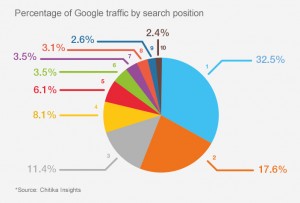WordPress.com and WordPress.org will both come into your field of view when having your website redesigned. If you haven’t tinkered with the plumbing under your website in a while, you may be happy to learn that both WordPress.com and WordPress.org have evolved quite significantly in recent years, with both offering a useful suite of tools you will likely be interested in leveraging.
With this in mind, we broke down the key differences between the two WordPress platforms:
WordPress.com
- A for-profit WordPress entity; owned by Auttomatic
- Ability to publish content under the WordPress.com domain
- Freemium model; free to publish under a WordPress.com subdomain (ie. Yourwebsite.WordPress.com)
- Your WordPress.com website will have online advertisements you cannot control unless you opt for an annual paid package
- You may not advertise your own company or make paid ads and/or endorsements
- Offer powerful WordPress plugin called “JetPack”, a free plugin with paid premium features which;
- Allows self-hosted WordPress websites to get advanced features, from a CDN (content delivery network) to enhanced mailing list support
- Linked to a WordPress.com account
- Allows self-hosted WordPress websites to get advanced features, from a CDN (content delivery network) to enhanced mailing list support
WordPress.org
- Your WordPress website will not be linked to Auttomatic, whatsoever
- Much like the self-hosted option, and unlike the WordPress.com option –you can get your own domain for websites hosted on this platform
- Tens of thousands of plugins and free themes on offer; everything you need to get started
- No advertising rules; you have complete control over your own advertising –or lack thereof
Simply Put, You’ll Likely Use Both
You could start a website on WordPress.org and then use JetPack from WordPress.com. And that’s only the beginning.
While WordPress.org allows for a great experience for first-timers, we suggest looking at a self-hosted option that is integrated with these additional WordPress platforms.
JetPack is a best-of-breed solution in even it’s free capacity, and WordPress.org captures the free and open aspect of the WordPress CMS movement that made it great. Exploring both options and understanding them as separate entities will go a long way when deciding whether to implement them or not.
In Summary
If you’re opting to go the cloud-hosted route, you’ll probably be best suited with WordPress.org which doesn’t monetise your corporate website with ads of it’s own you have no control over.
If you’re going the self-hosted route, be sure to explore the WordPress.com JetPack plugin; in either case, WordPress has got you covered.
Digital & Social Articles on Business 2 Community(61)
Report Post




